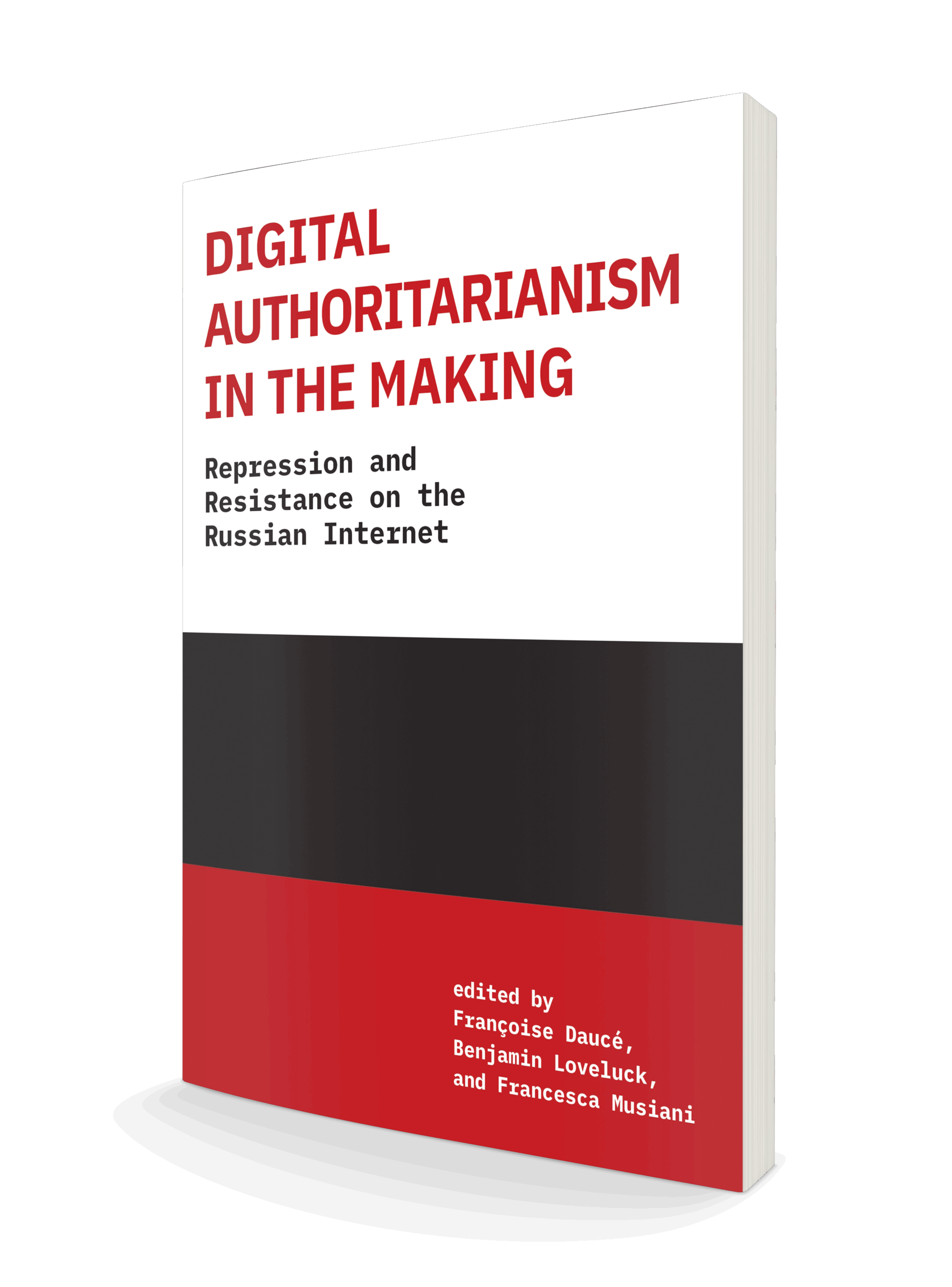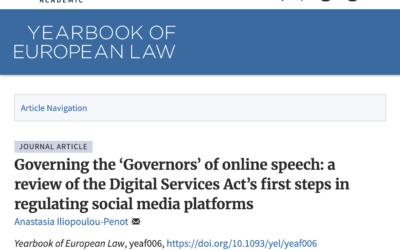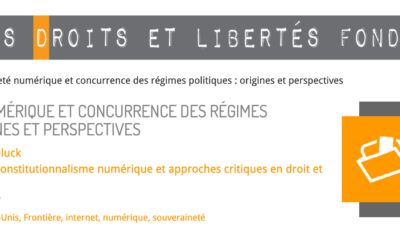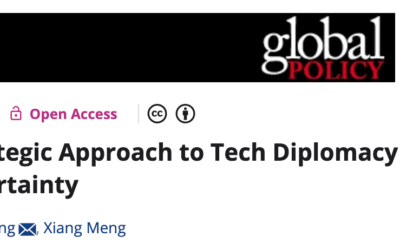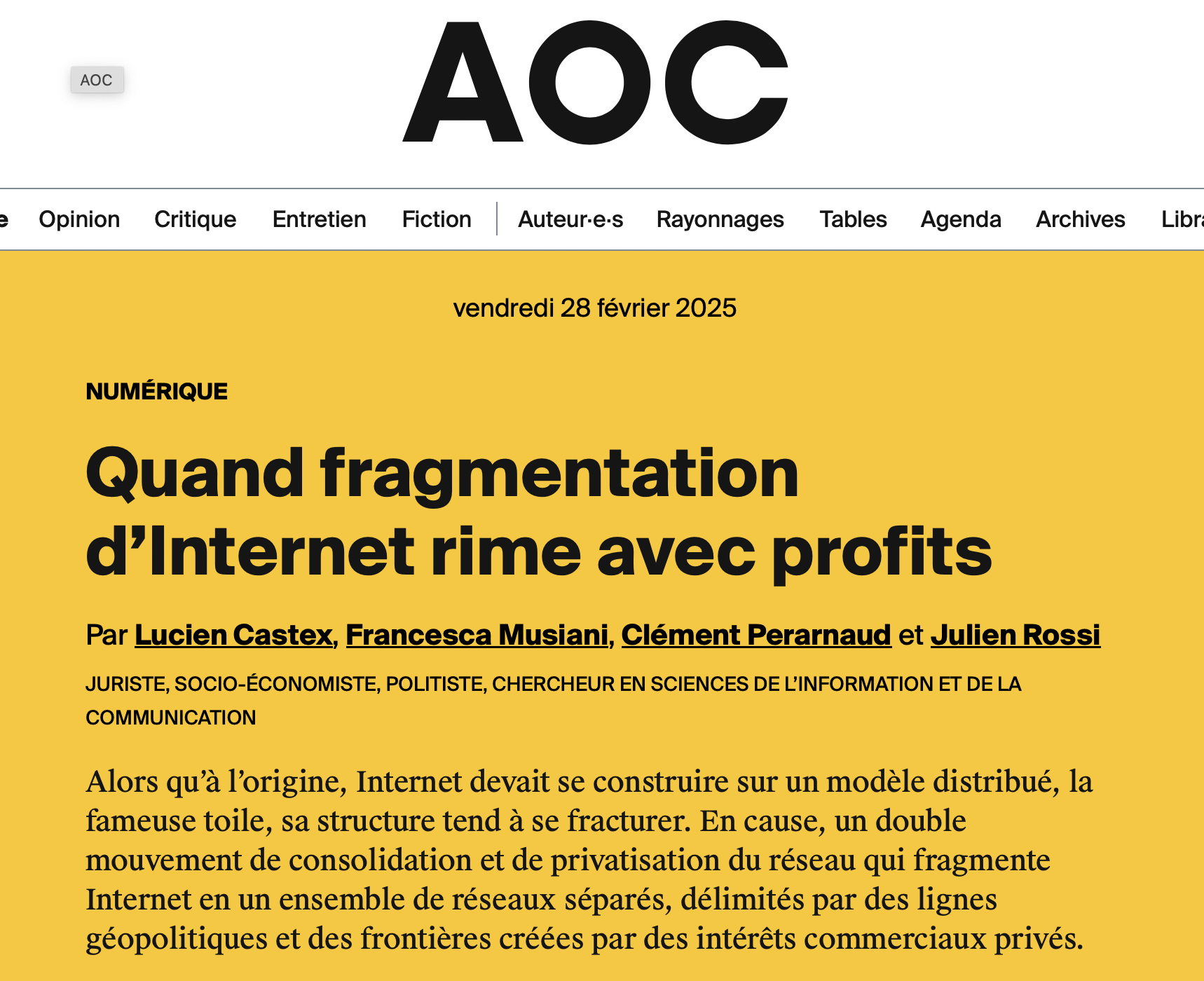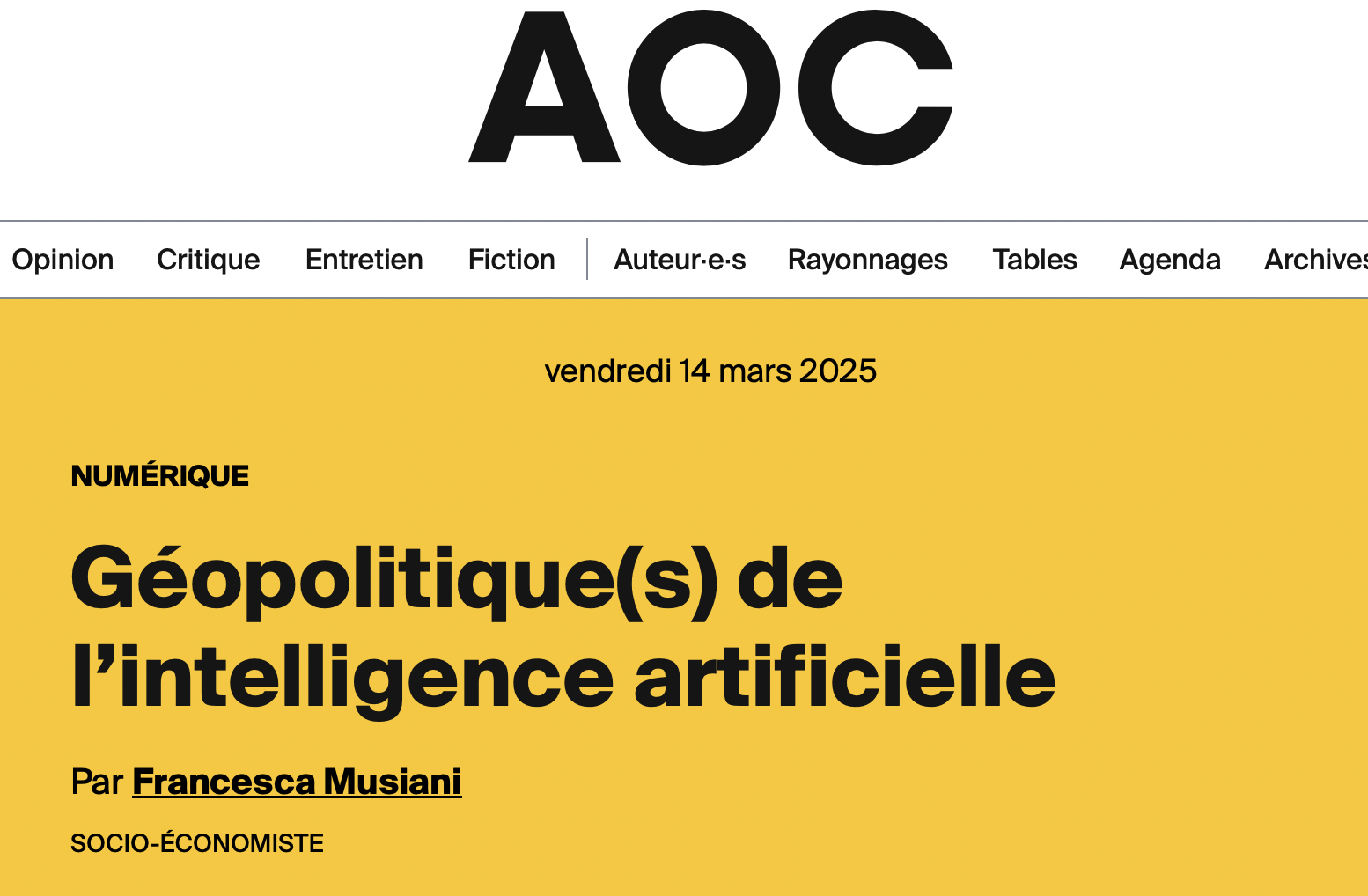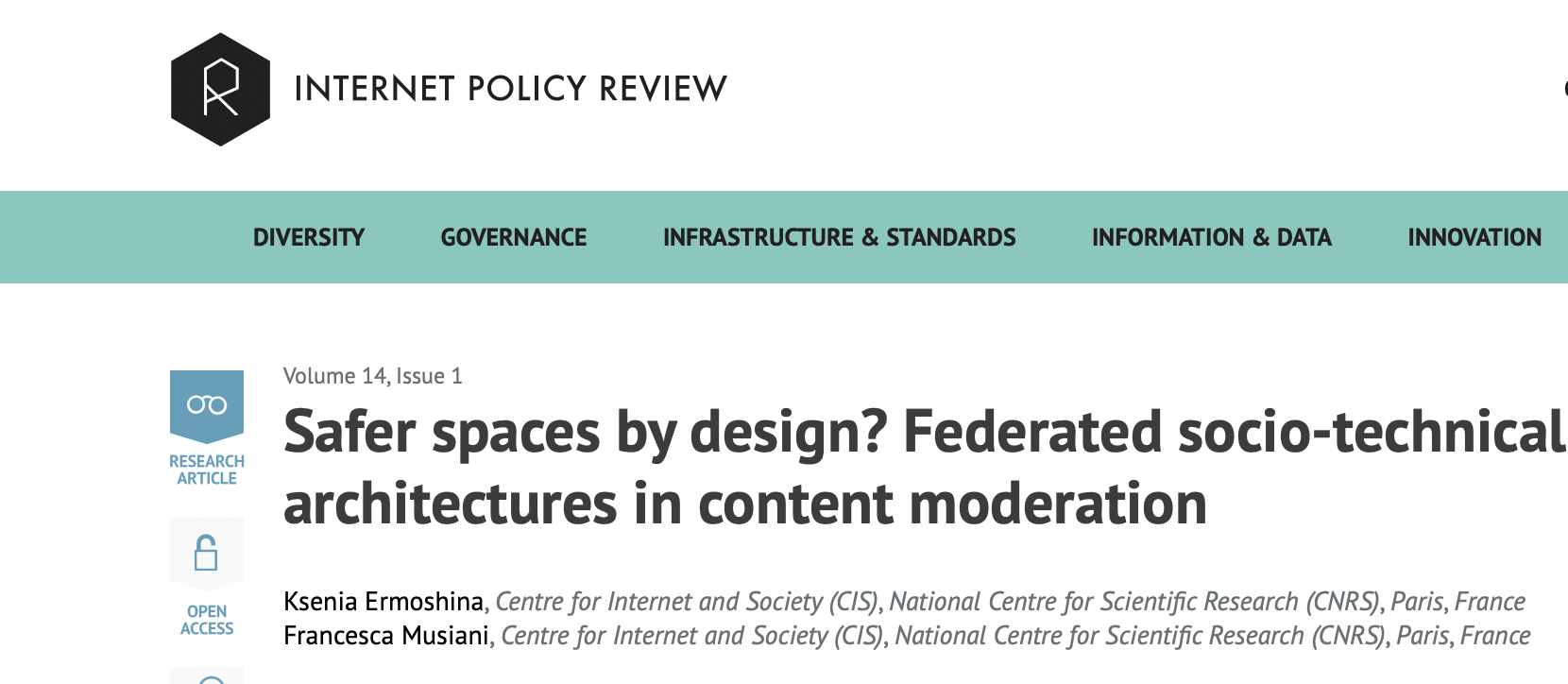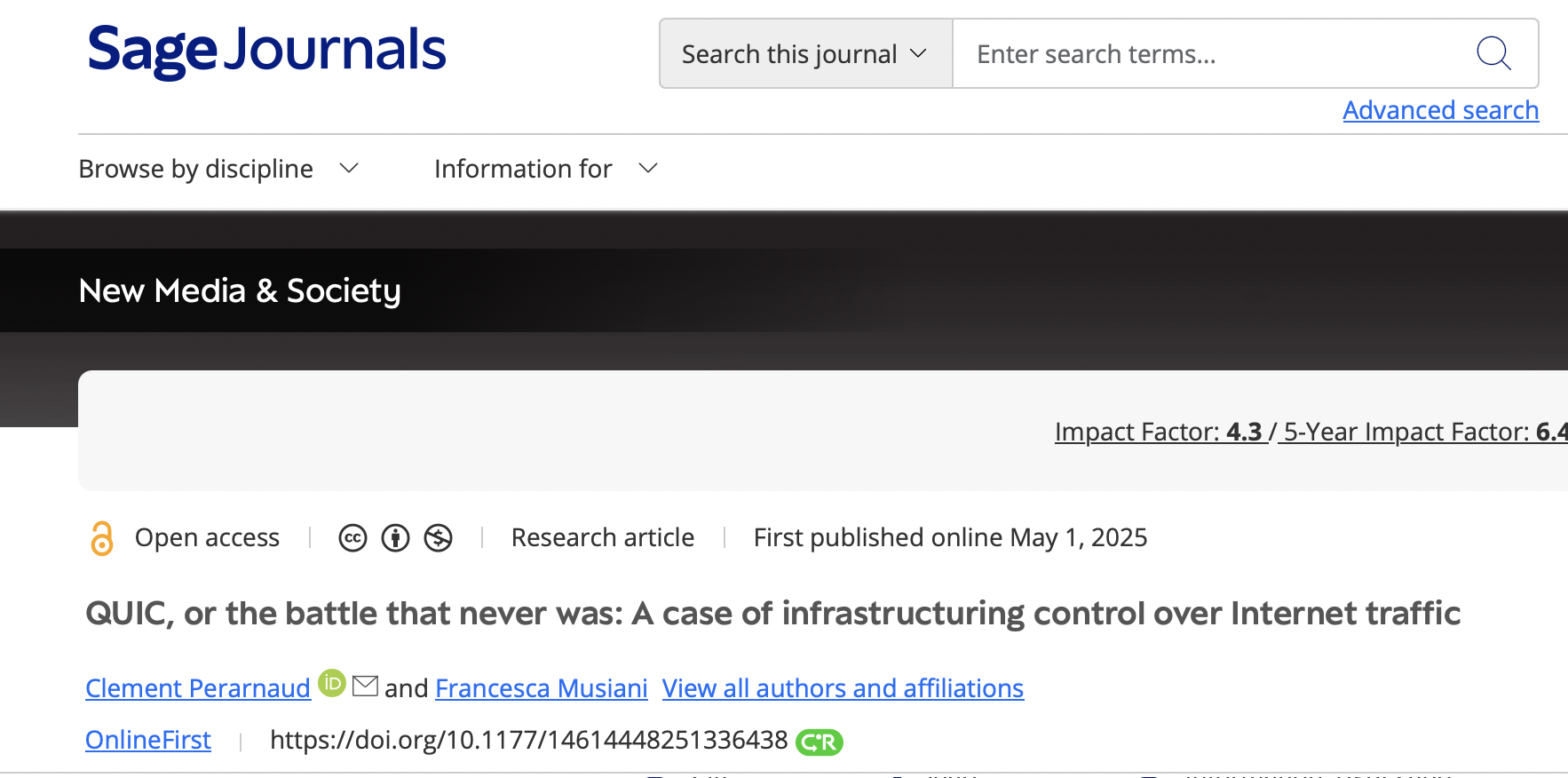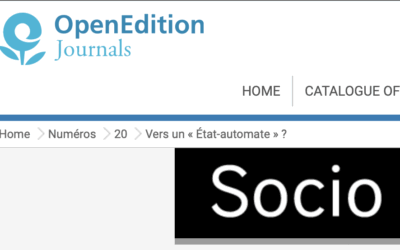Publications
Livre | Digital Authoritarianism in the Making
Françoise Daucé, Benjamin Loveluck & Francesca Musiani (dir.), Digital Authoritarianism in the Making. Repression and Resistance on the Russian Internet, The MIT Press, 2025 Disponible en accès ouvert. Cet ouvrage est la traduction en anglais, révisée et...
Article | Governing the ‘Governors’ of online speech: a review of the Digital Services Act’s first steps in regulating social media platforms
Anastasia Iliopoulou-Penot, “Governing the 'Governors' of online speech: a review of the Digital Services Act's first steps in regulating social media platforms”, Yearbook of European Law, 2025 The Digital Services Act (DSA) introduces a comprehensive set of rules...
Article | Souveraineté numérique et concurrence des régimes politiques : origines et perspectives
Publication dans le cadre du dossier « Constitutionnalisme numérique et approches critiques en droit et technologie » de la Revue des droits et libertés fondamentaux, coordonné par Manon Altwegg-Boussac et Afroditi Marketou. Benjamin Loveluck, « Souveraineté numérique...
Article | China’s strategic approach to tech diplomacy in a time of global uncertainty
Zhao Alexandre Huang and Xiang Meng, “China’s strategic approach to tech diplomacy in a time of global uncertainty”, Global Policy, online first, 2025 In the wake of U.S.-China technological competition and the COVID-19 pandemic, “tech diplomacy” has gained prominence...
Article | Quand fragmentation d’Internet rime avec profits
Alors qu’à l’origine, Internet devait se construire sur un modèle distribué, la fameuse toile, sa structure tend à se fracturer. En cause, un double mouvement de consolidation et de privatisation du réseau qui fragmente Internet en un ensemble de réseaux séparés,...
Article | Géopolitique(s) de l’intelligence artificielle
Une nouvelle intelligence générative a fait irruption dans les mondes numériques : DeepSeek. Cette arrivée confirme qu’une nouvelle course à l’innovation, des années après la conquête spatiale, oppose les principaux acteurs des technologies de l’information et de la...
Article | Safer spaces by design? Federated socio-technical architectures in content moderation
Users of secure messaging tools, especially in communities attuned to the risks of state-based and other forms of censorship, increasingly hesitate to delegate their data to centralised platforms, endowed with substantial power to filter content and block user...
Article | QUIC, or the battle that never was: A case of infrastructuring control over Internet traffic
This article investigates the development and deployment process of QUIC, a new standard of the Internet Engineering Task Force (IETF) that is fostering momentous architectural change in the ways in which communication and data packets transport happens on the...
Article | Vers un « État-automate » ? Intelligence artificielle, transformations du travail et action publique
L’article aborde l’introduction et la mise en fonctionnement de dispositifs soutenus par l’intelligence artificielle (IA), dans l’action publique. Au cours des dernières années, les États et les gouvernements – y compris la France – ont de plus en plus recours à ce...
Article | Réseaux sociaux et risques systémiques : les premiers pas dans la mise en œuvre du Digital Services Act
Anastasia Iliopoulou-Penot, professeur à l'université Paris-Panthéon-Assas et membre du projet DIGISOV, publie une contribution dans La Semaine juridique du 7 avril 2025 : « Réseaux sociaux et risques systémiques : les premiers pas dans la mise en œuvre du Digital...
Chapitre | Circumventing the “sovereignization” of the Russian Internet
Françoise Daucé, Ksenia Ermoshina, Benjamin Loveluck et Francesca Musiani co-signent un chapitre intitulé « Circumventing the “sovereignization” of the Russian internet » dans l'ouvrage collectif dirigé par Min Jiang et Luca Belli, Digital Sovereignty in the BRICS...
Chapitre | China’s public diplomacy: a historical analysis of its institutions and conceptual pathways
Zhao Alexandre Huang, membre du projet DIGISOV, publie un chapitre intitulé « China's public diplomacy: a historical analysis of its institutions and conceptual pathways » dans l’ouvrage collectif dirigé par Sean Aday, Handbook...

